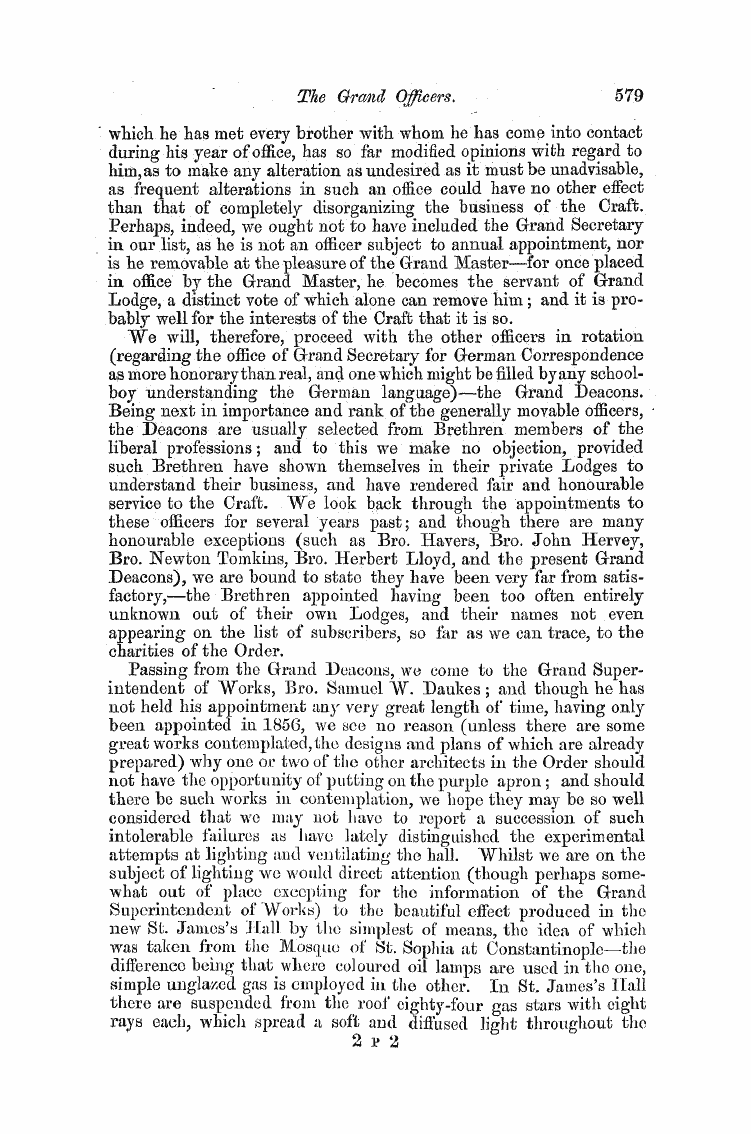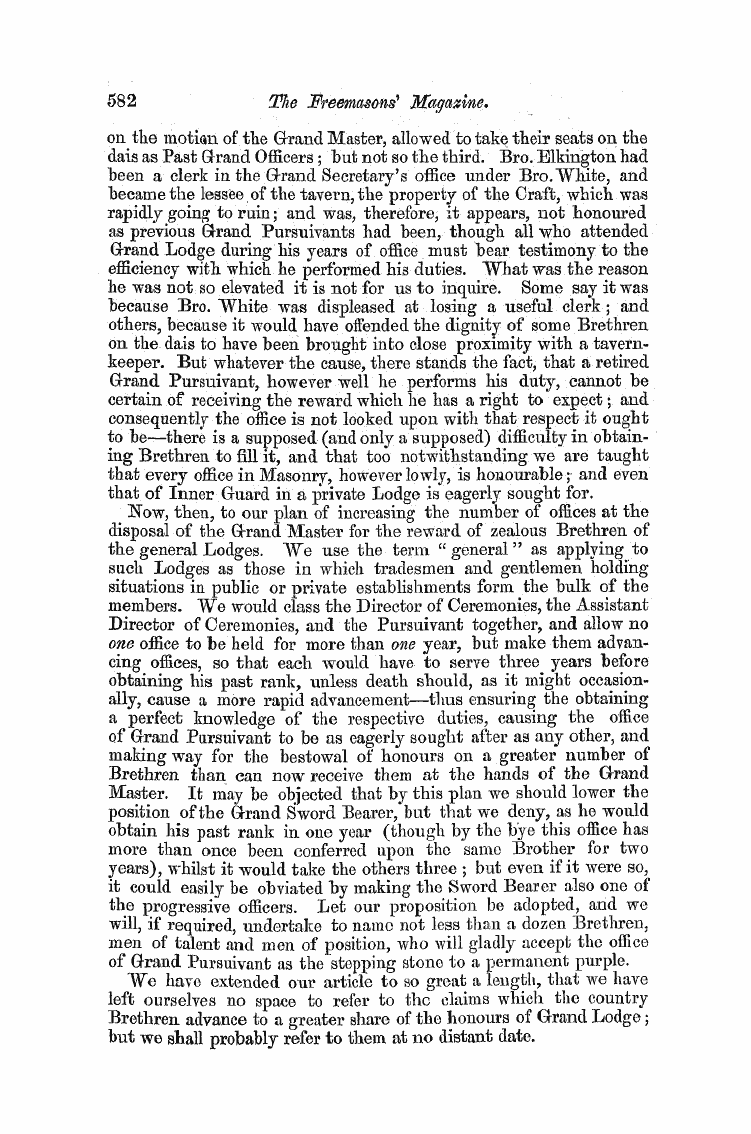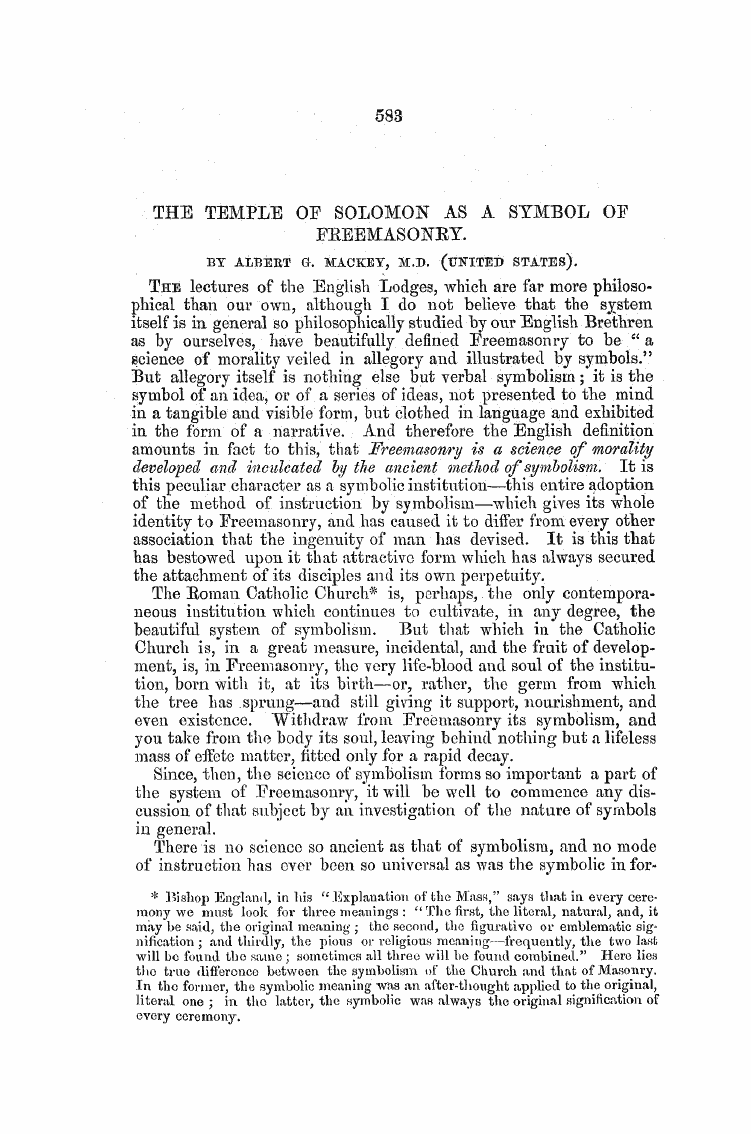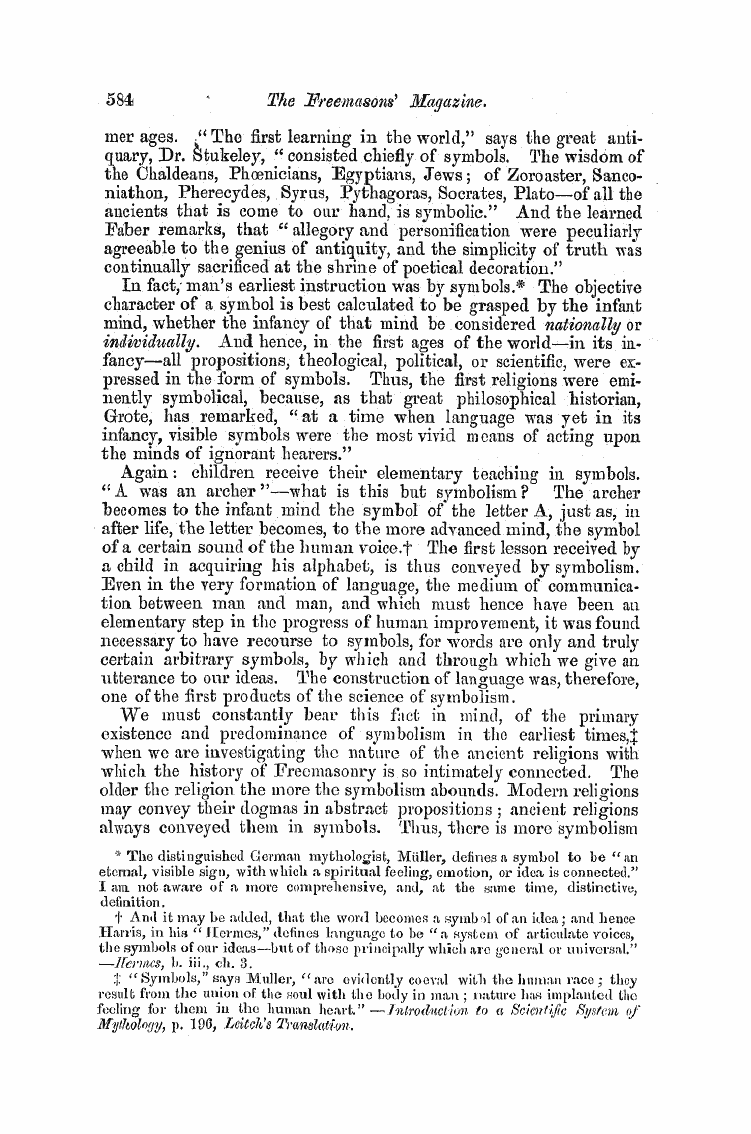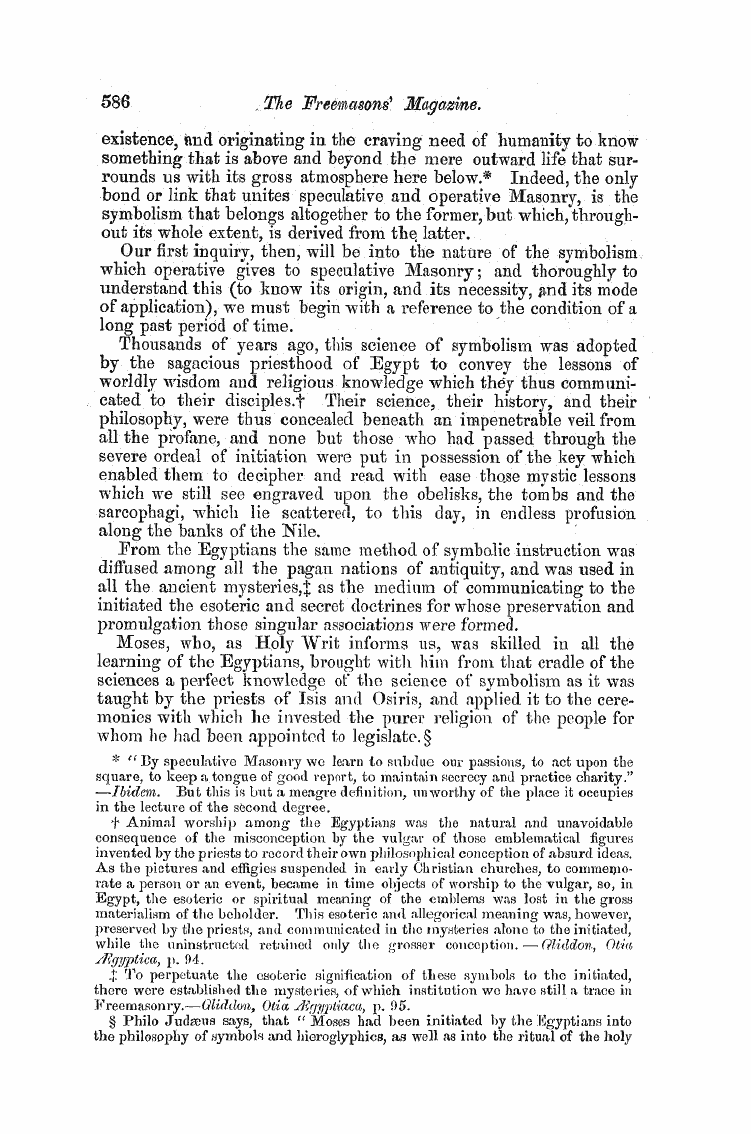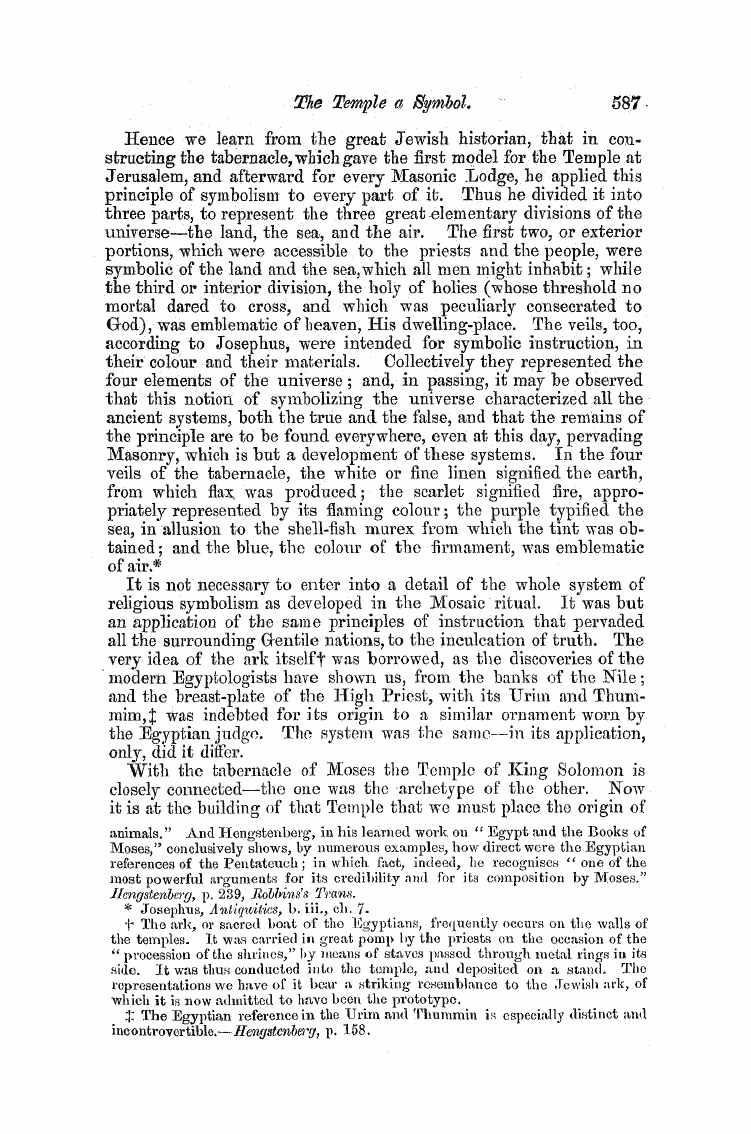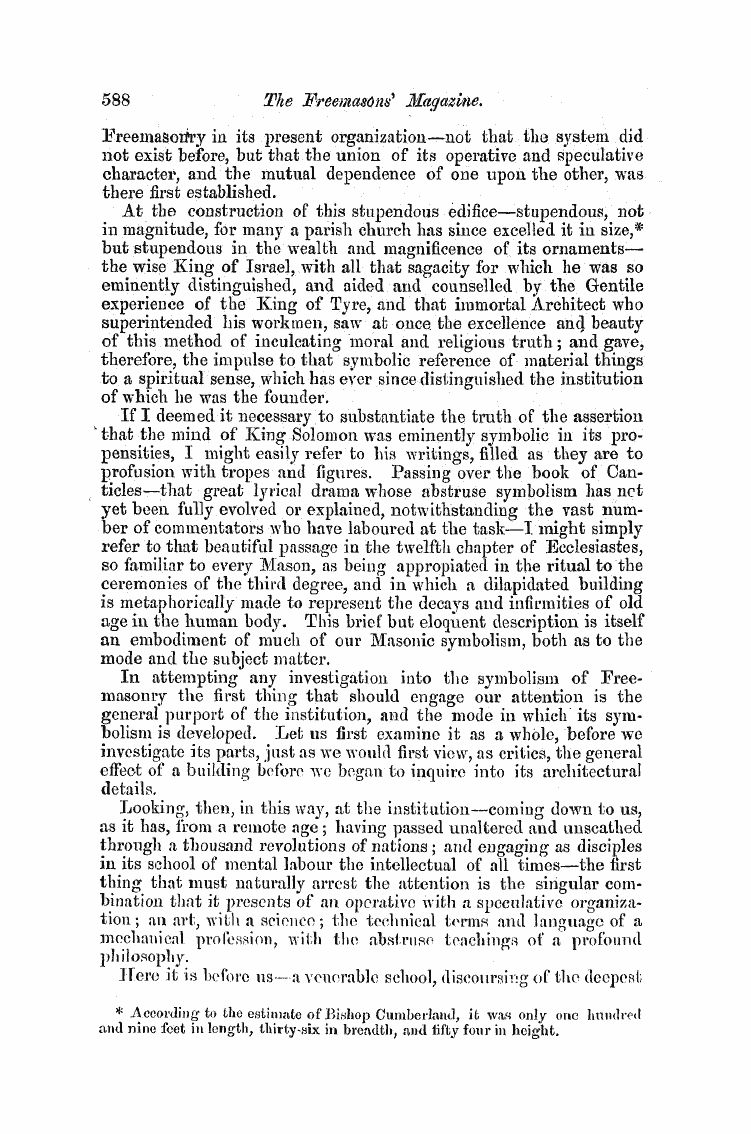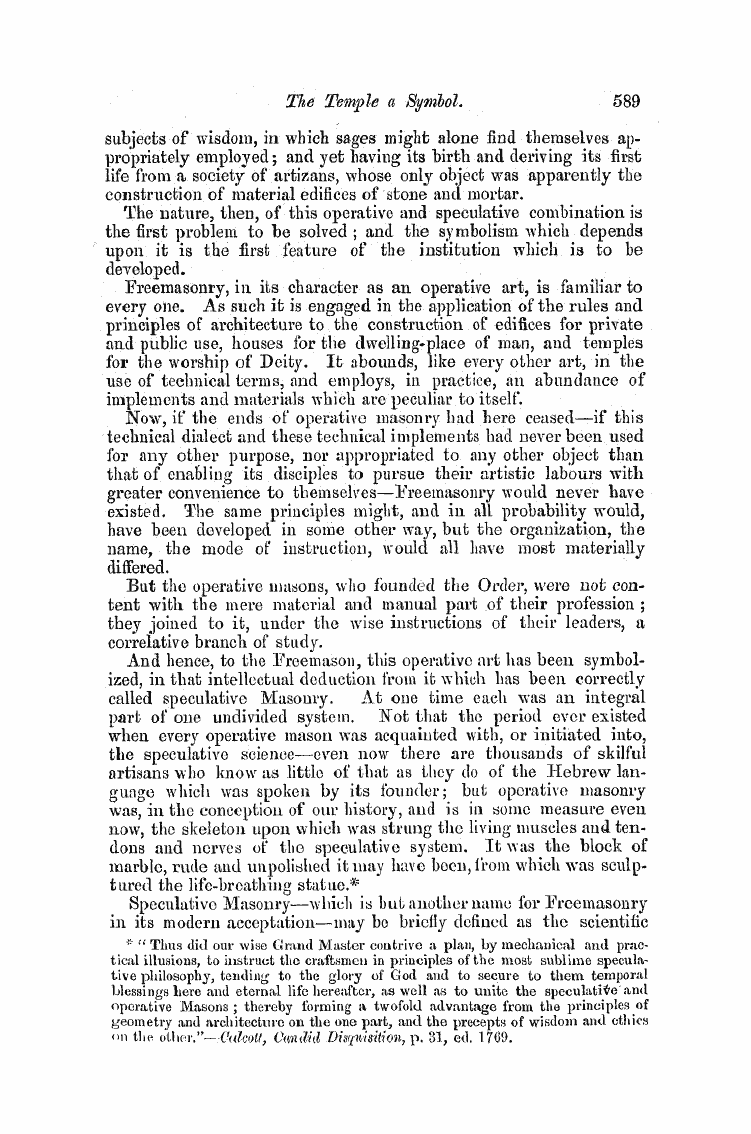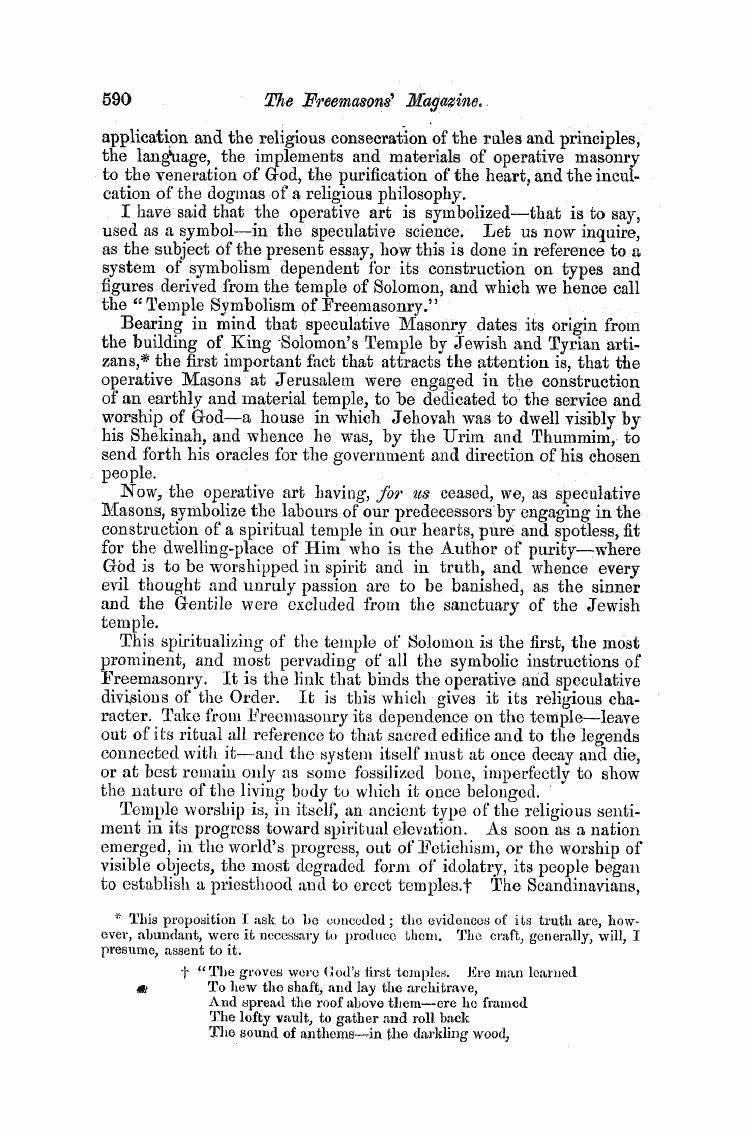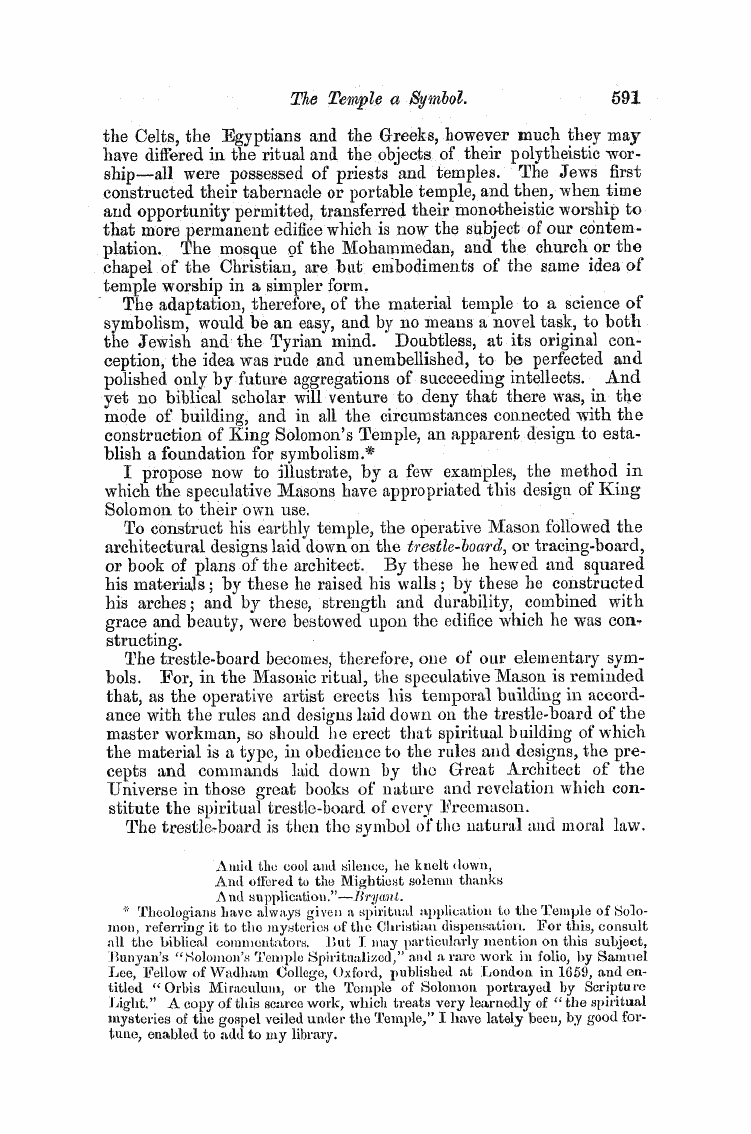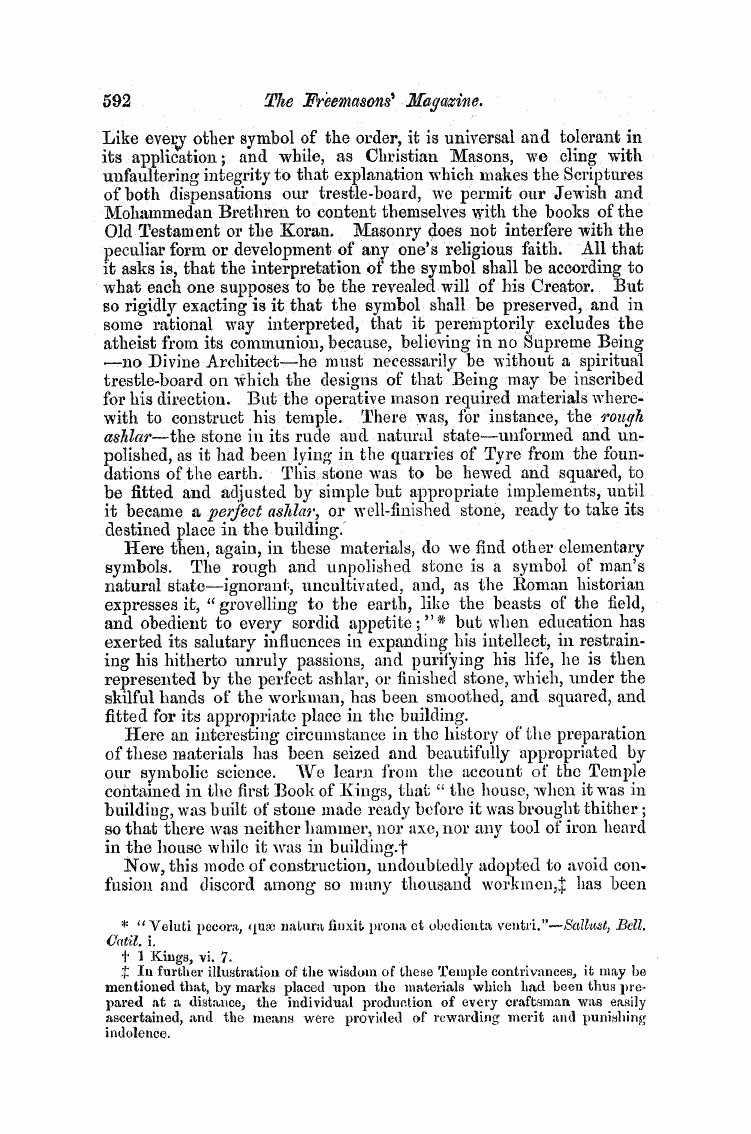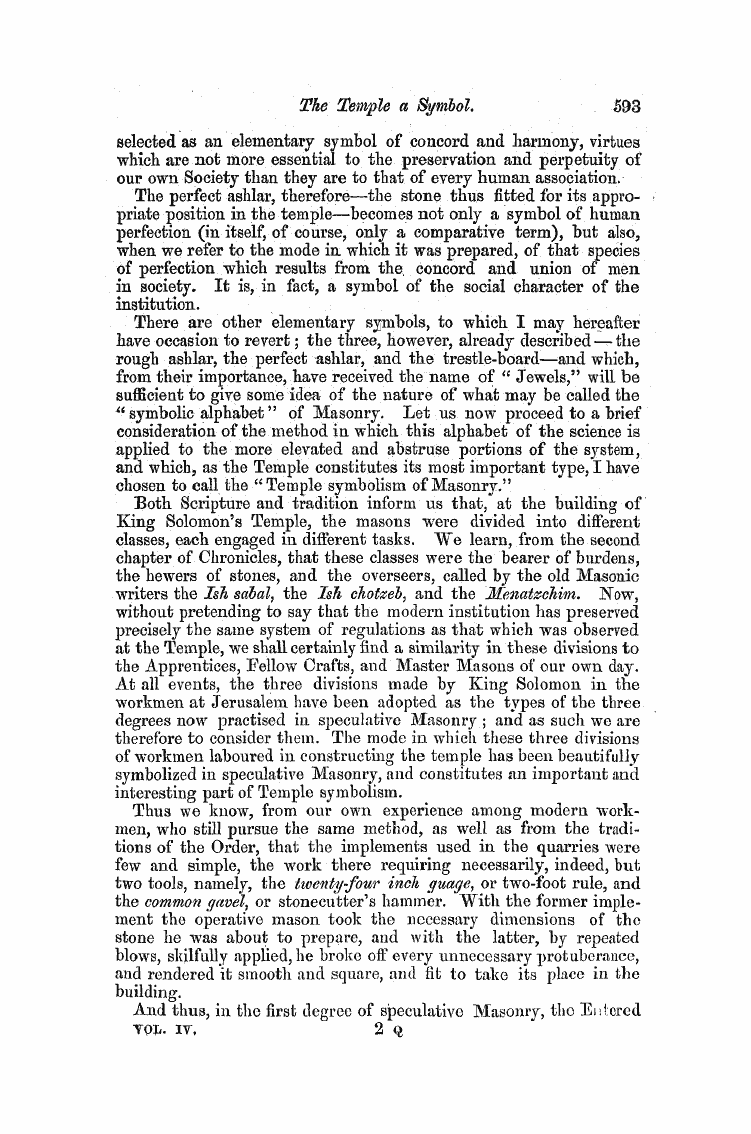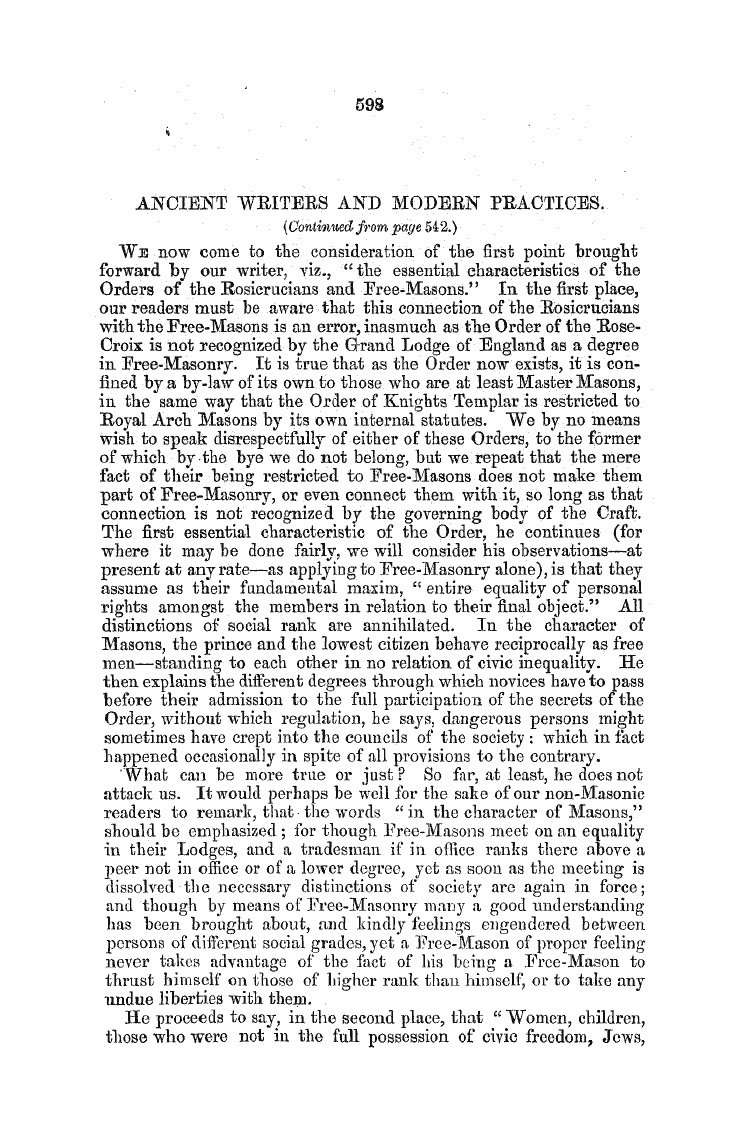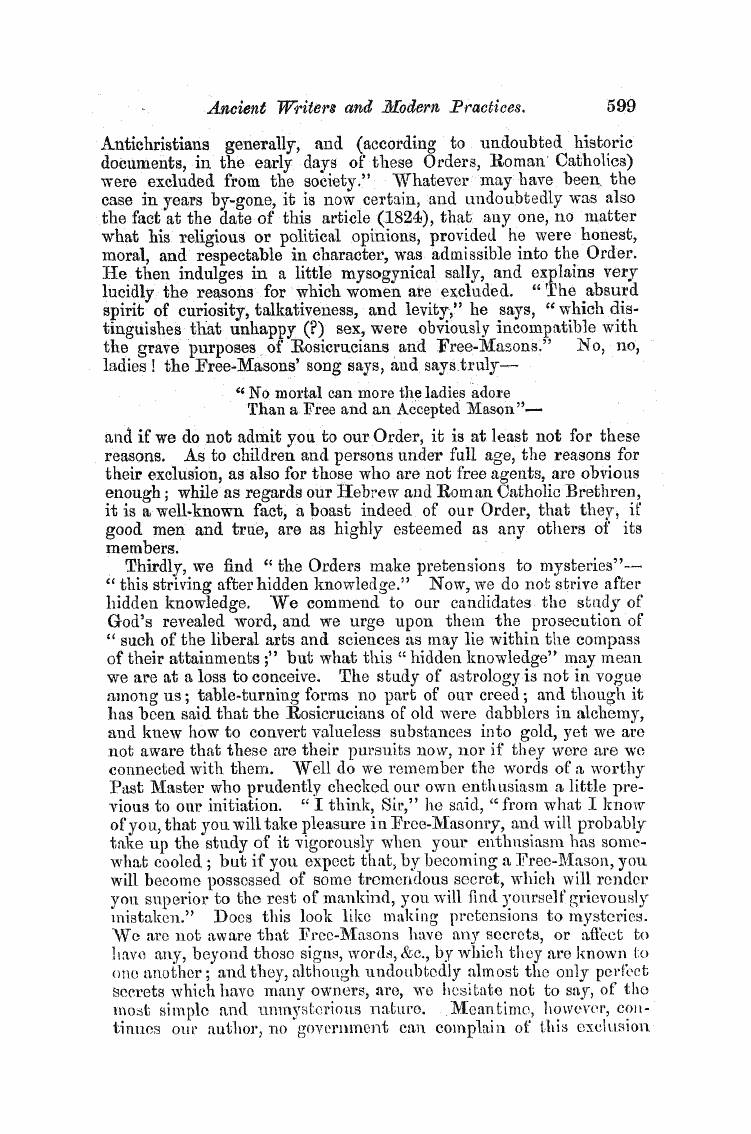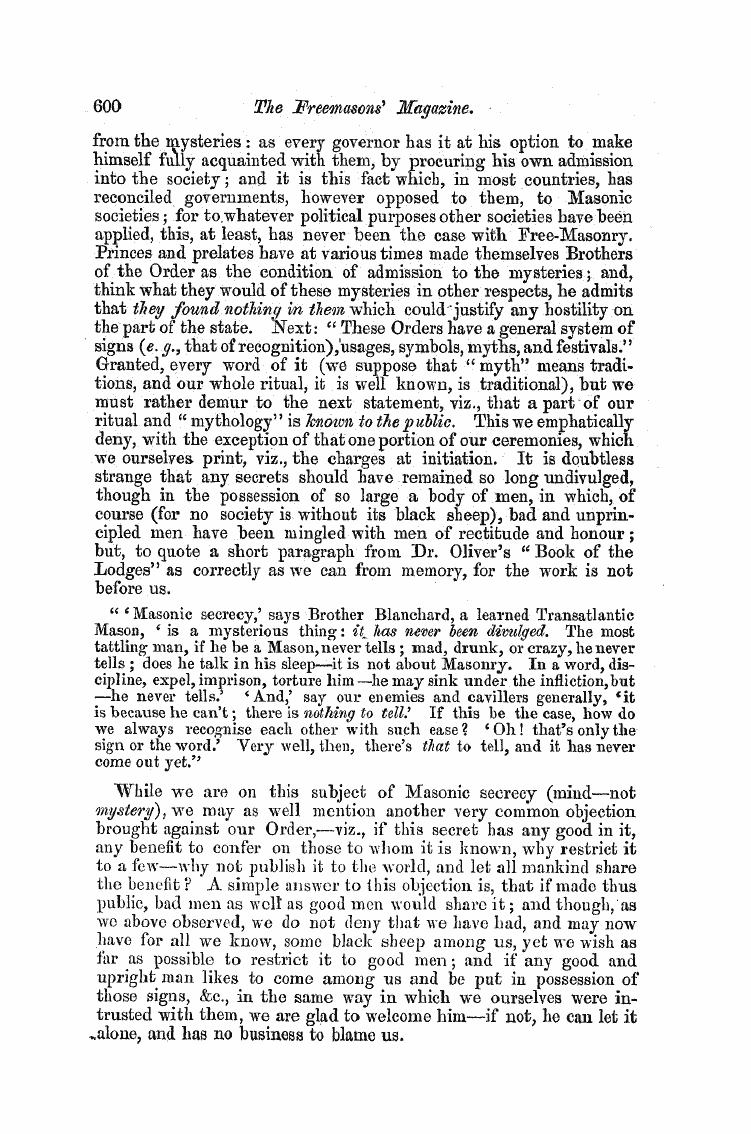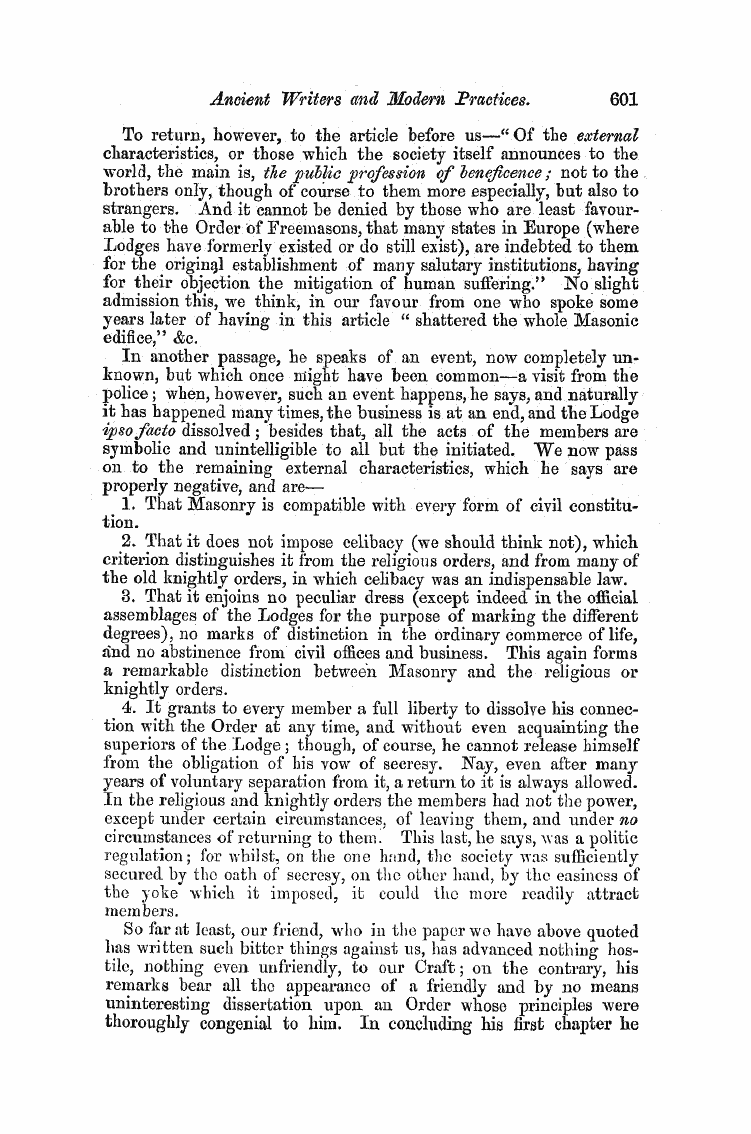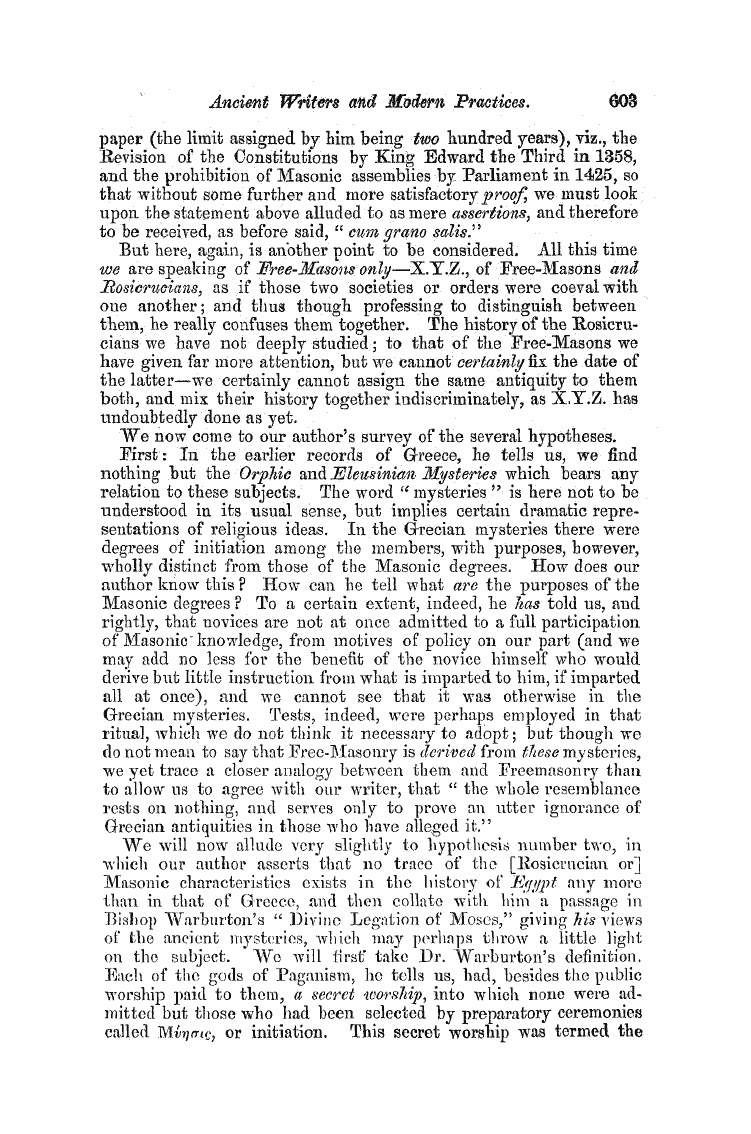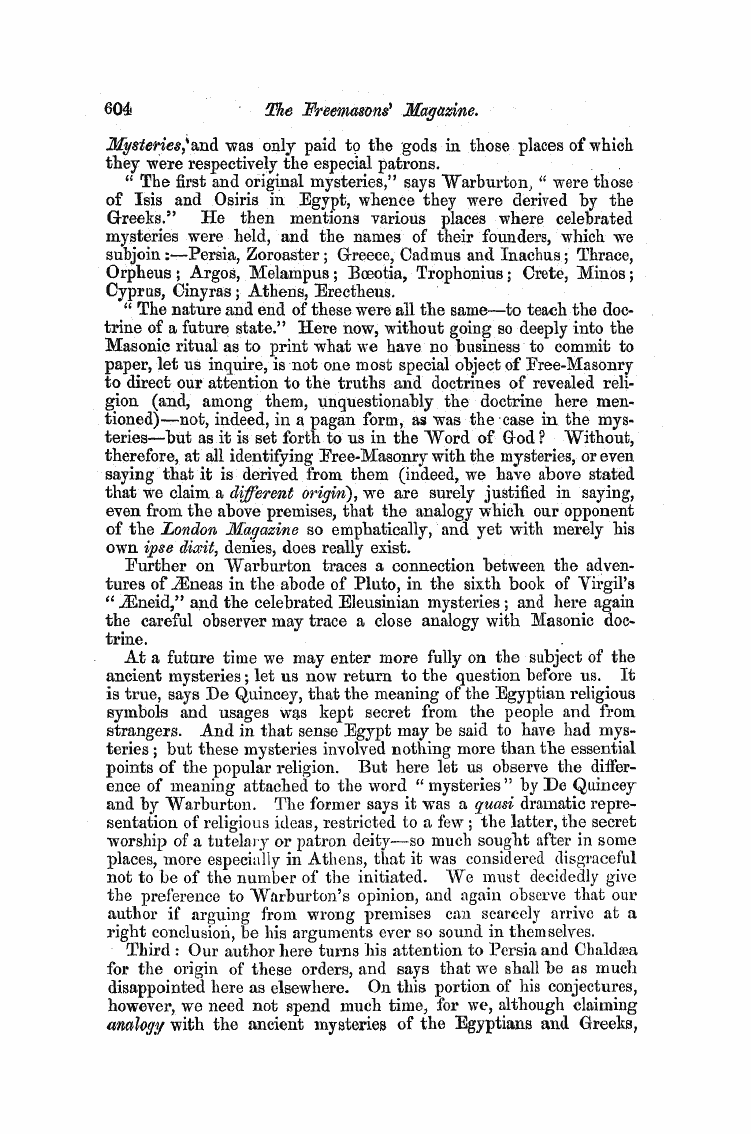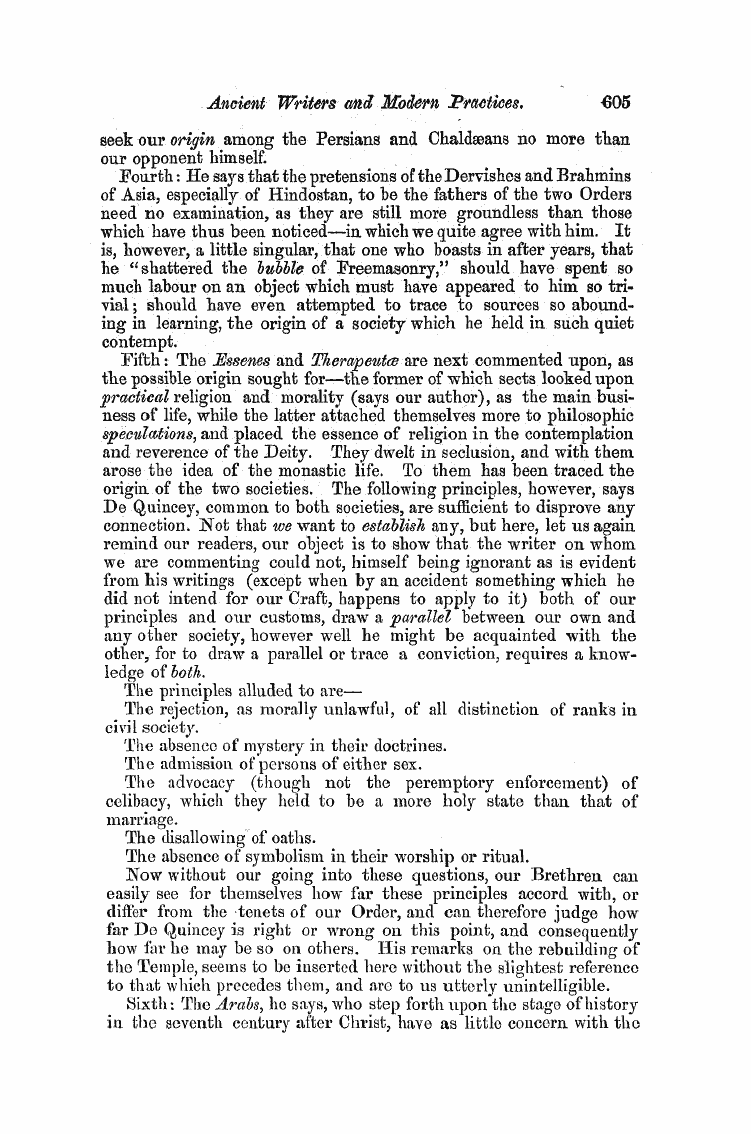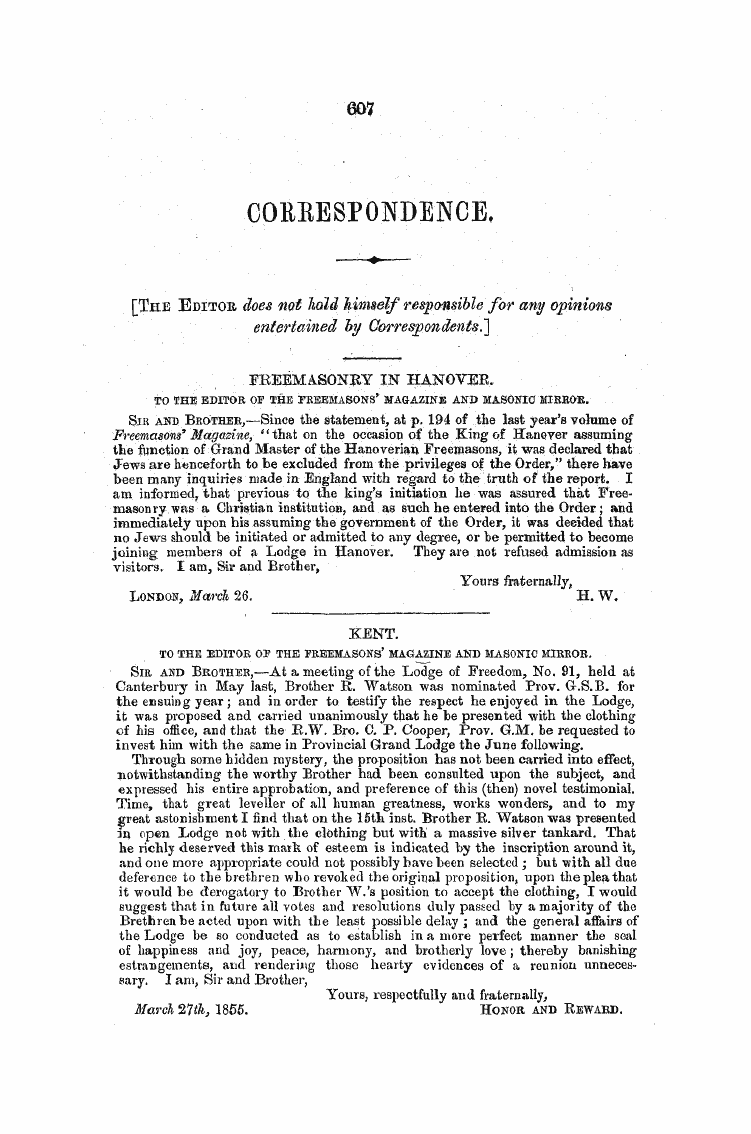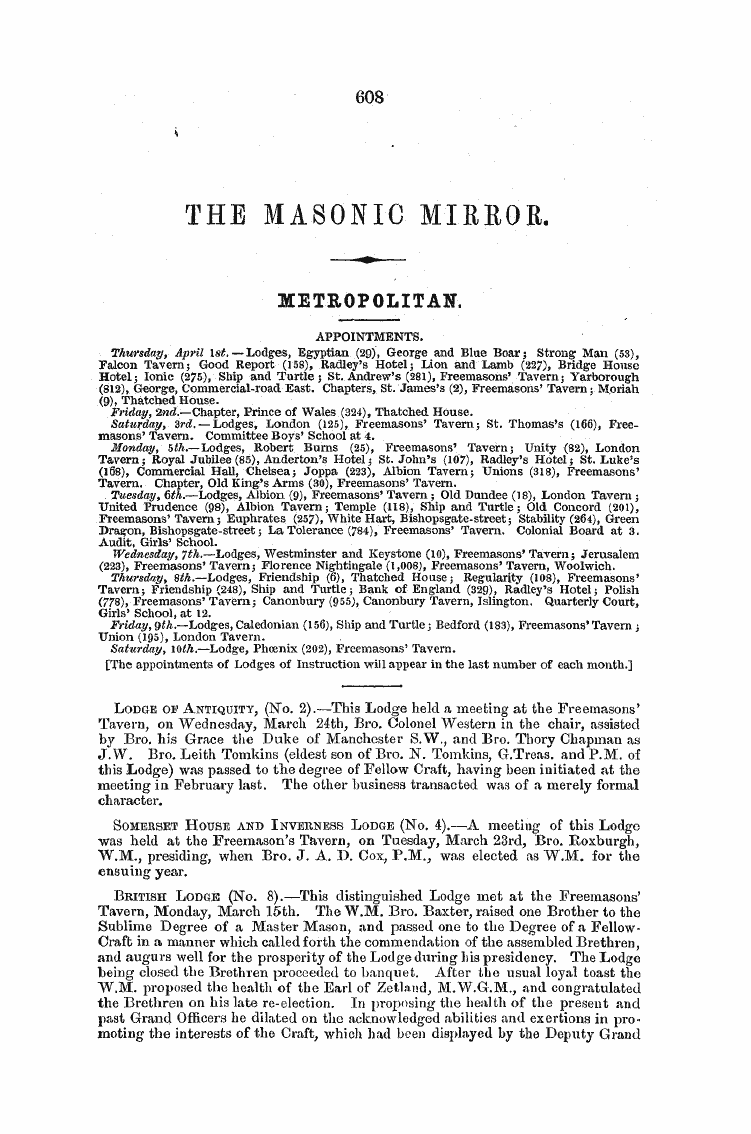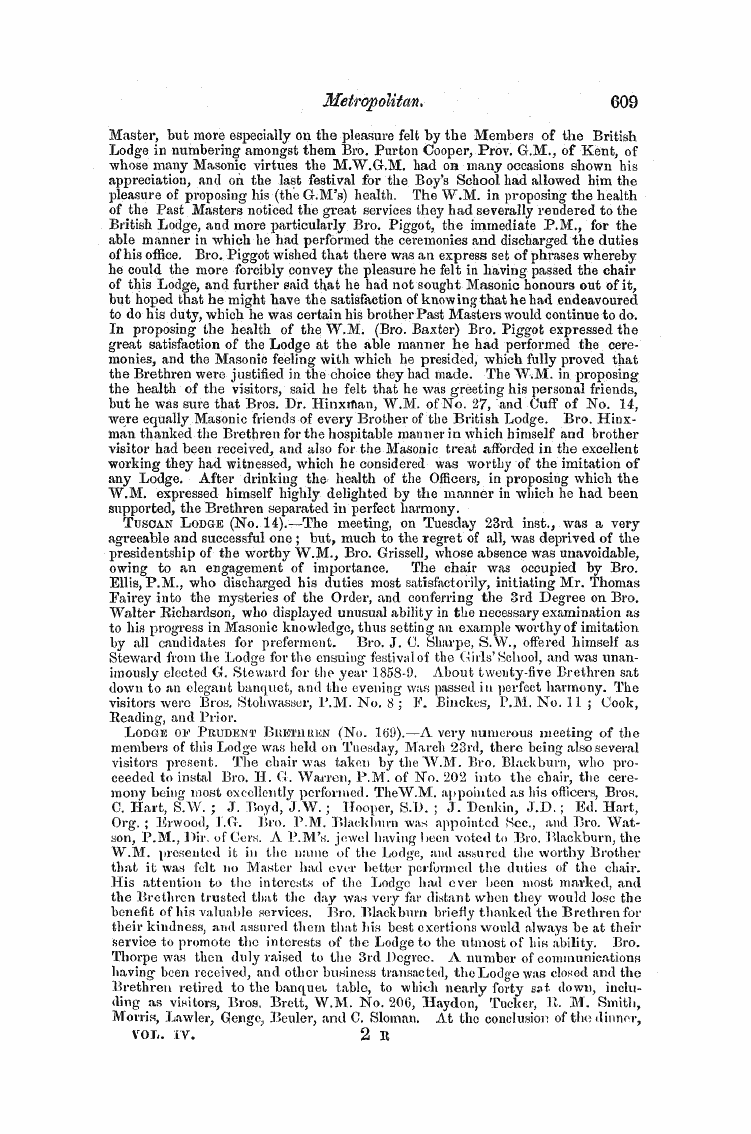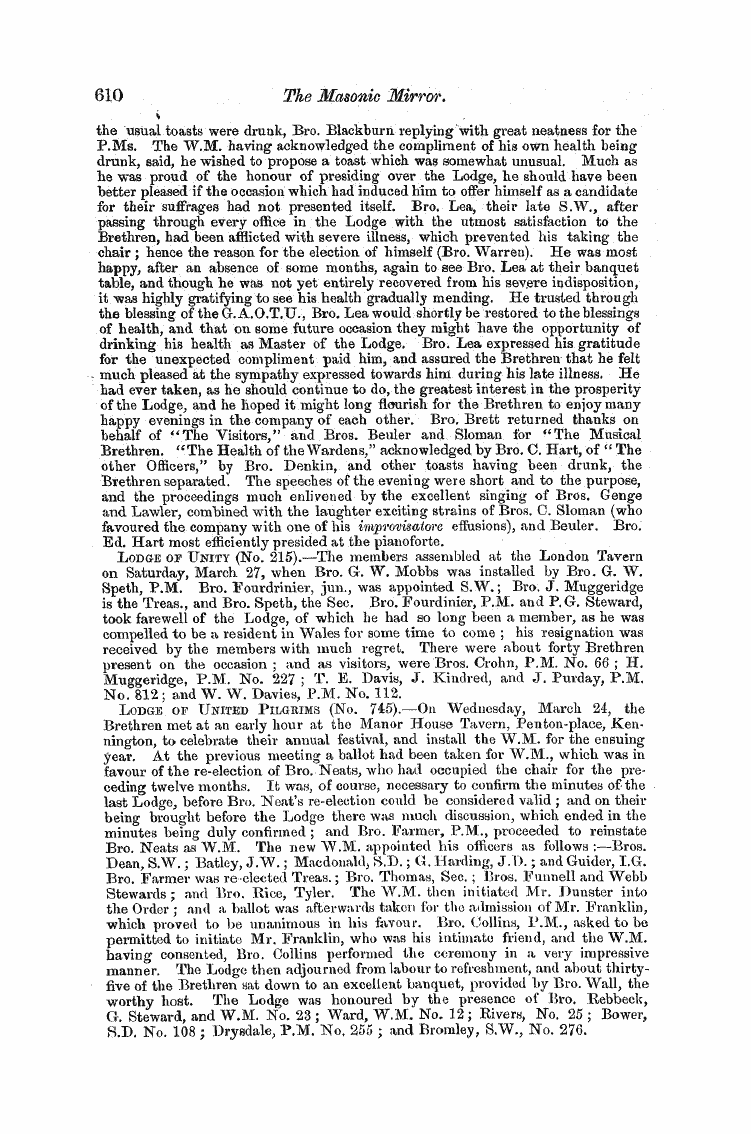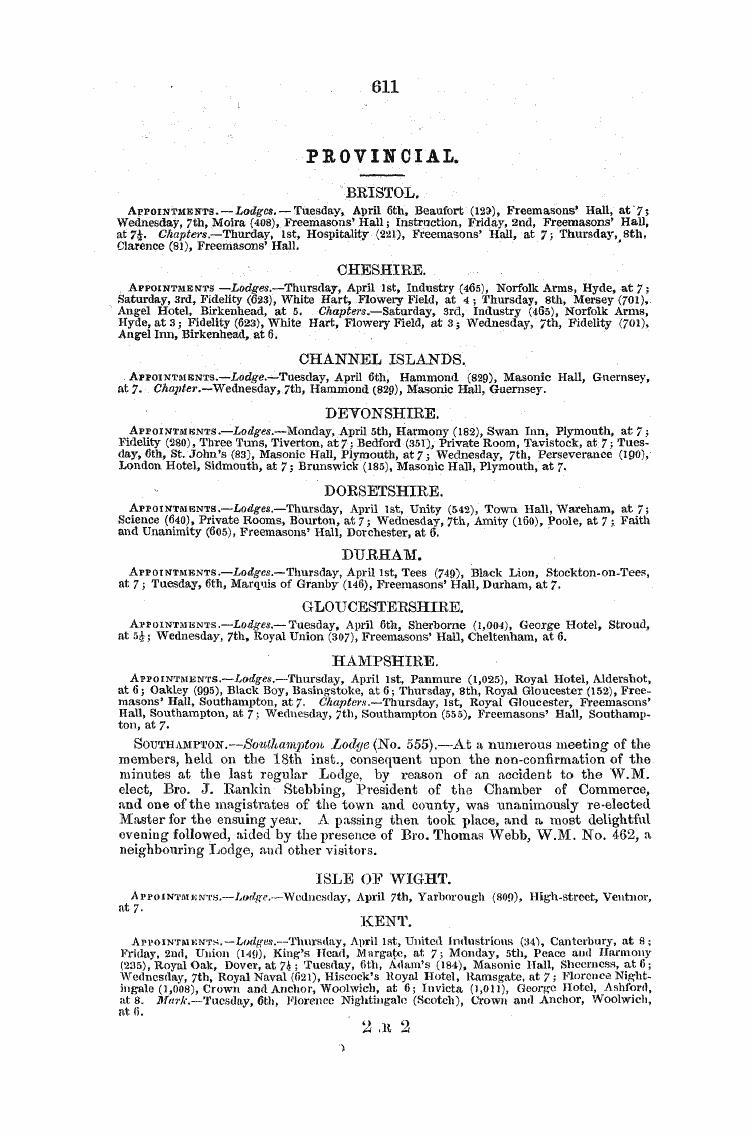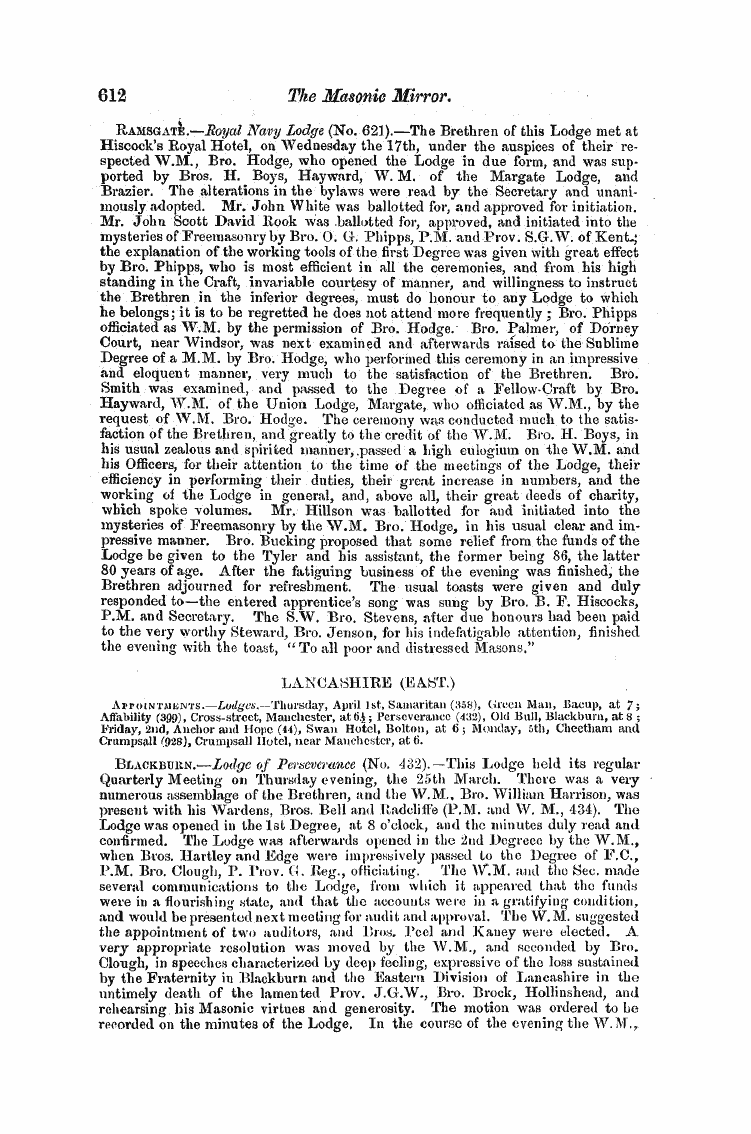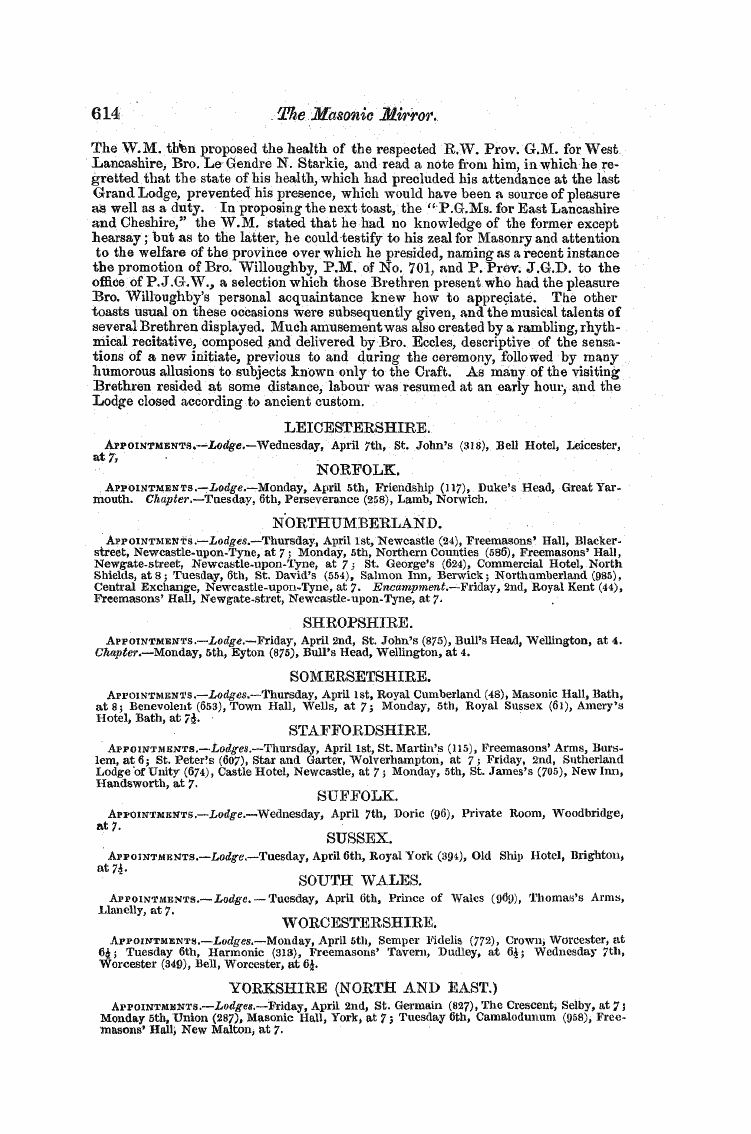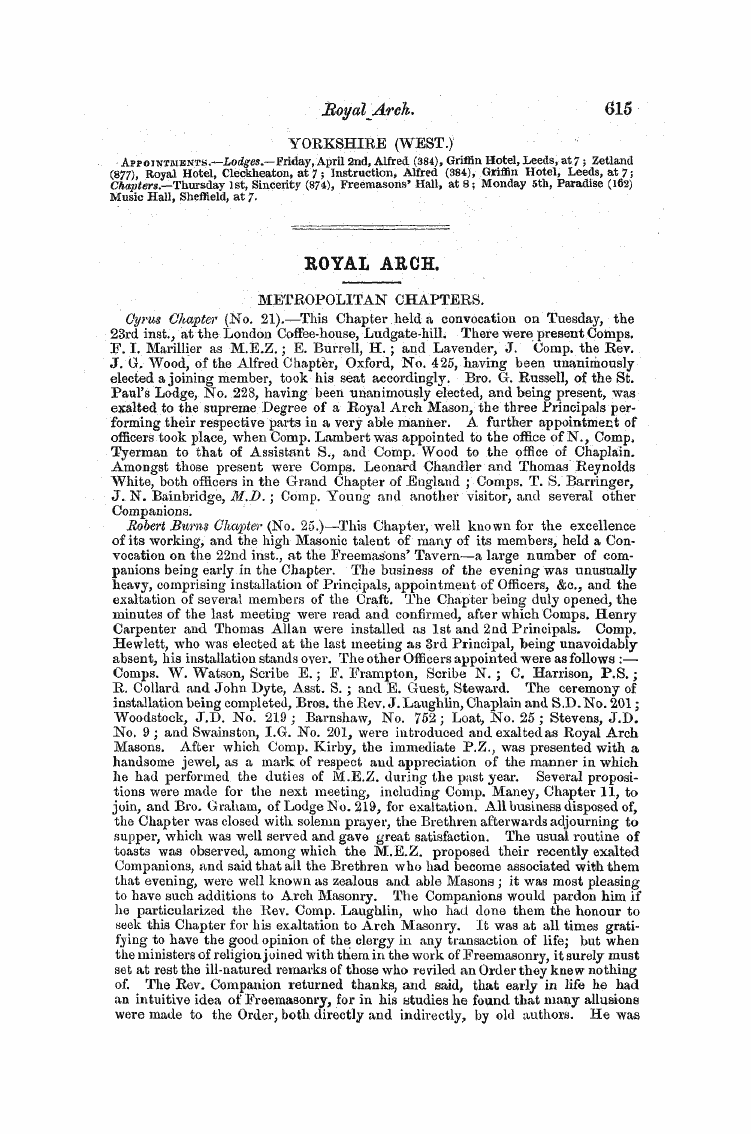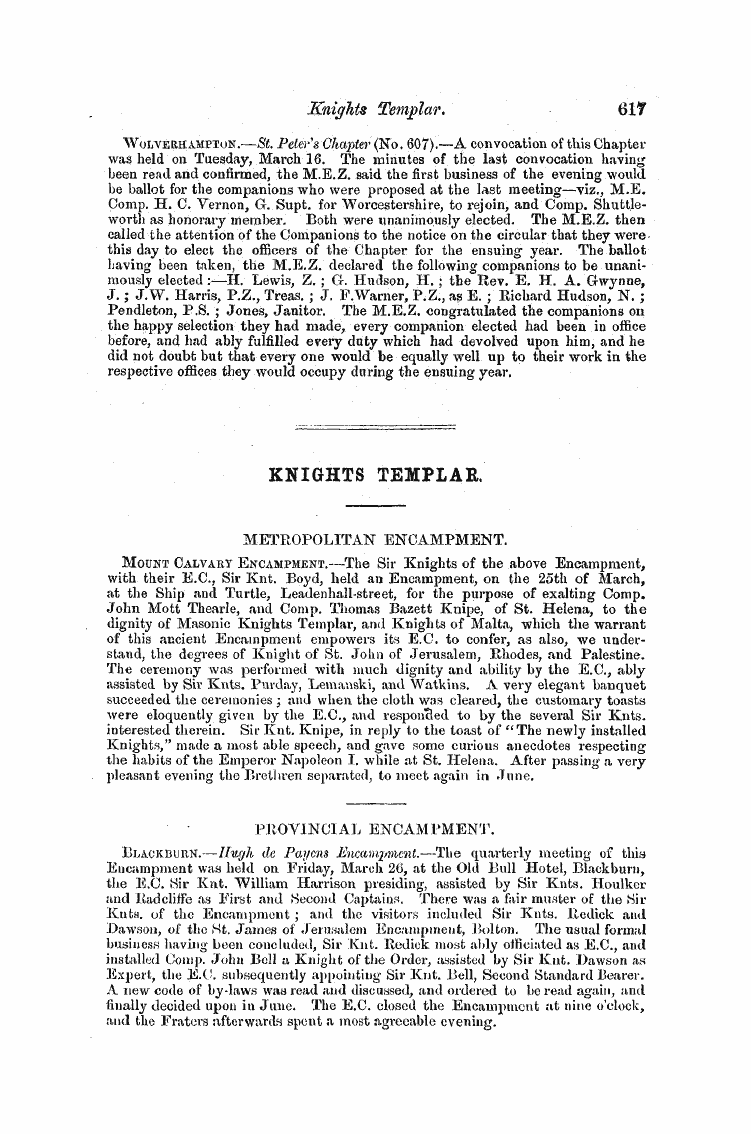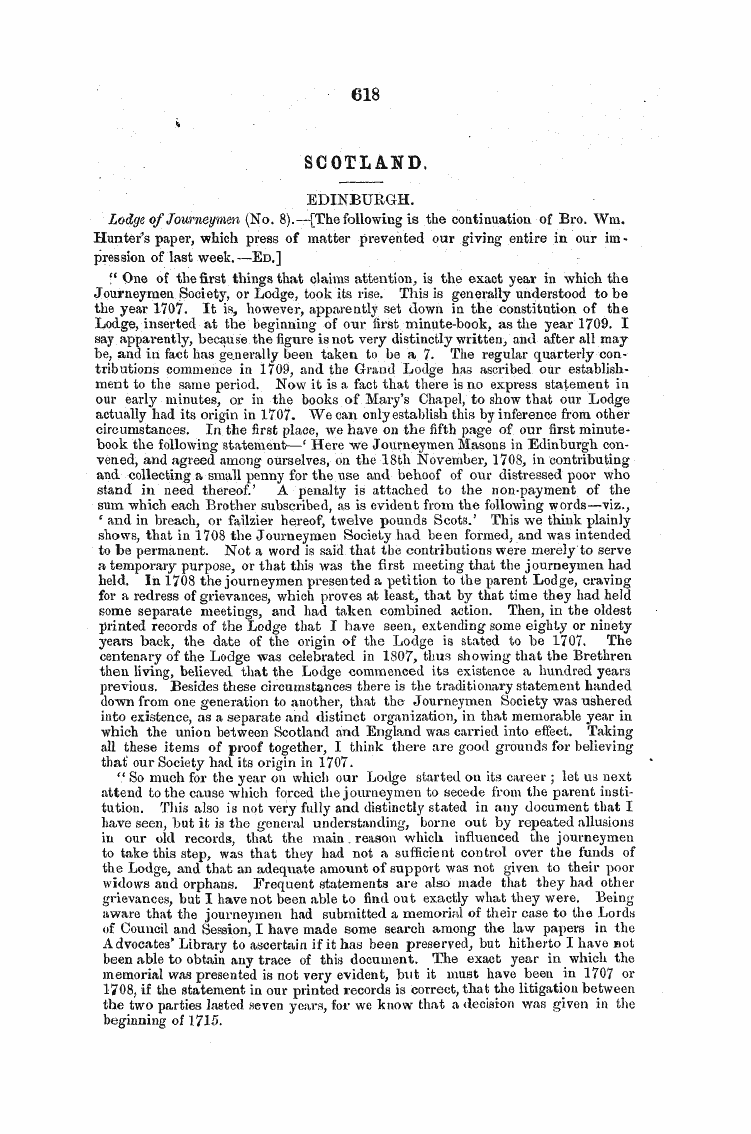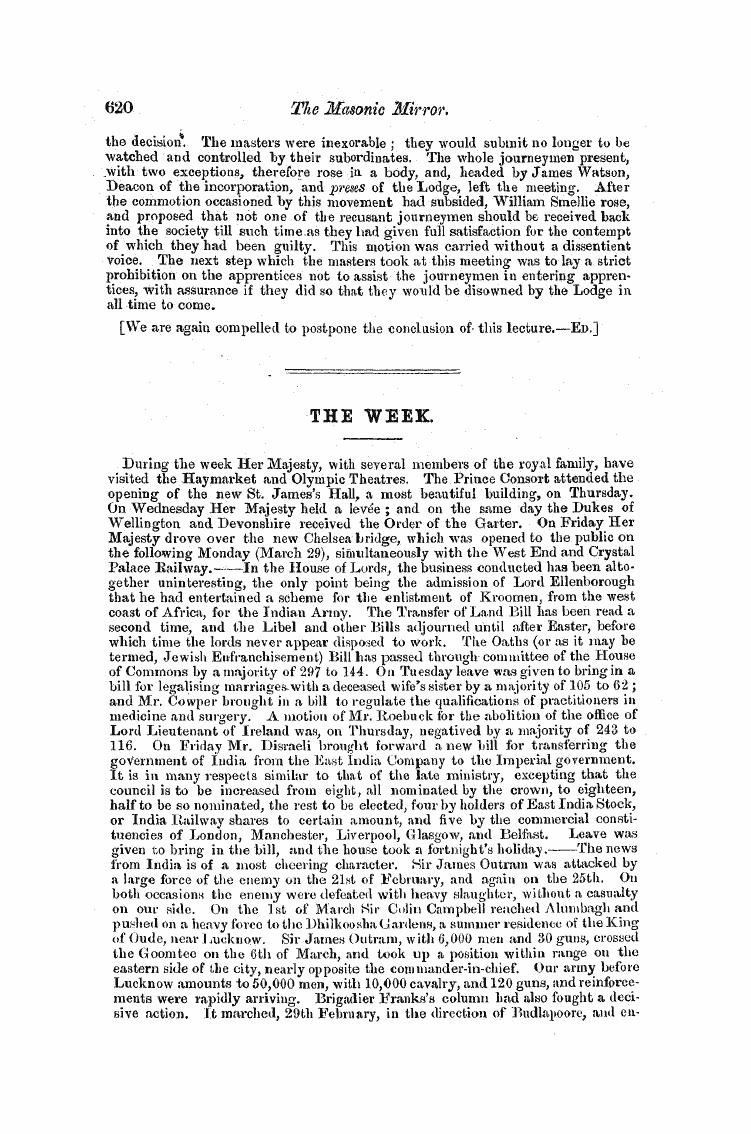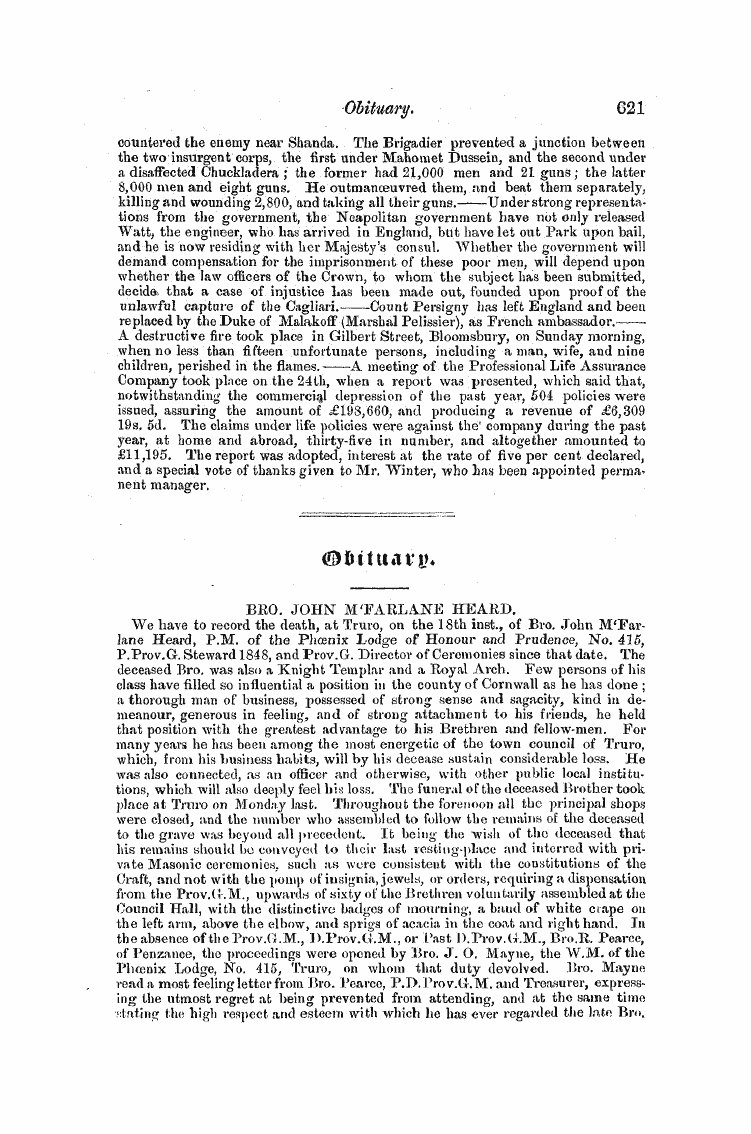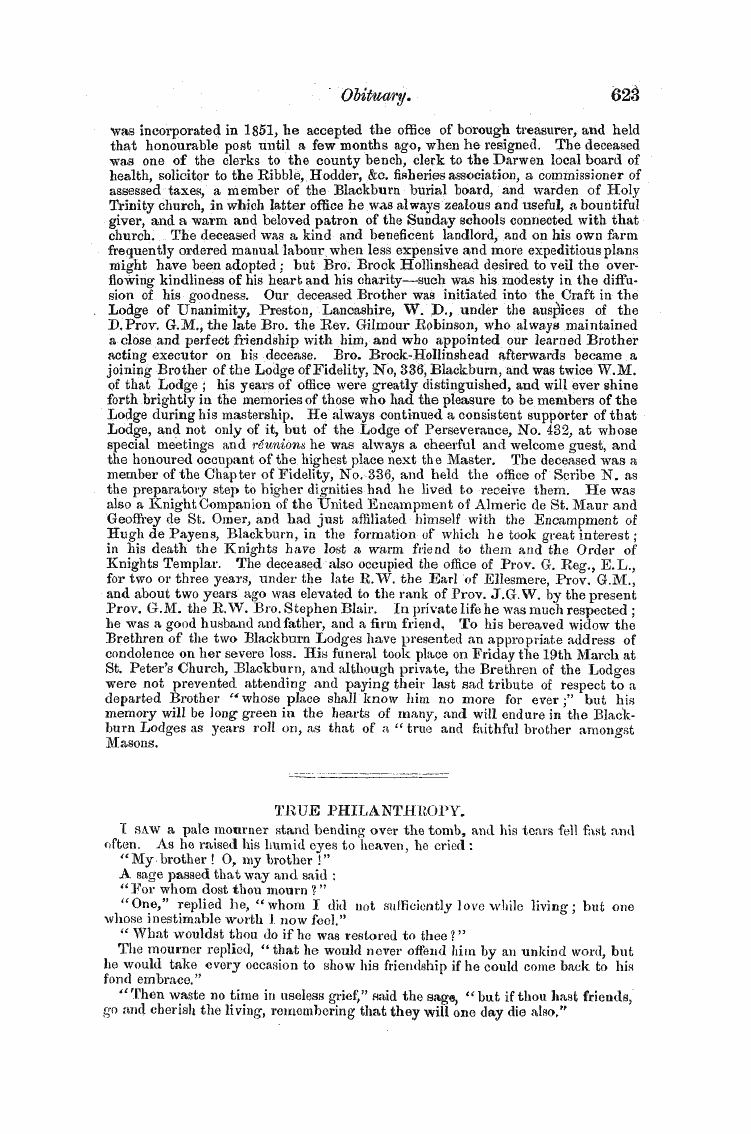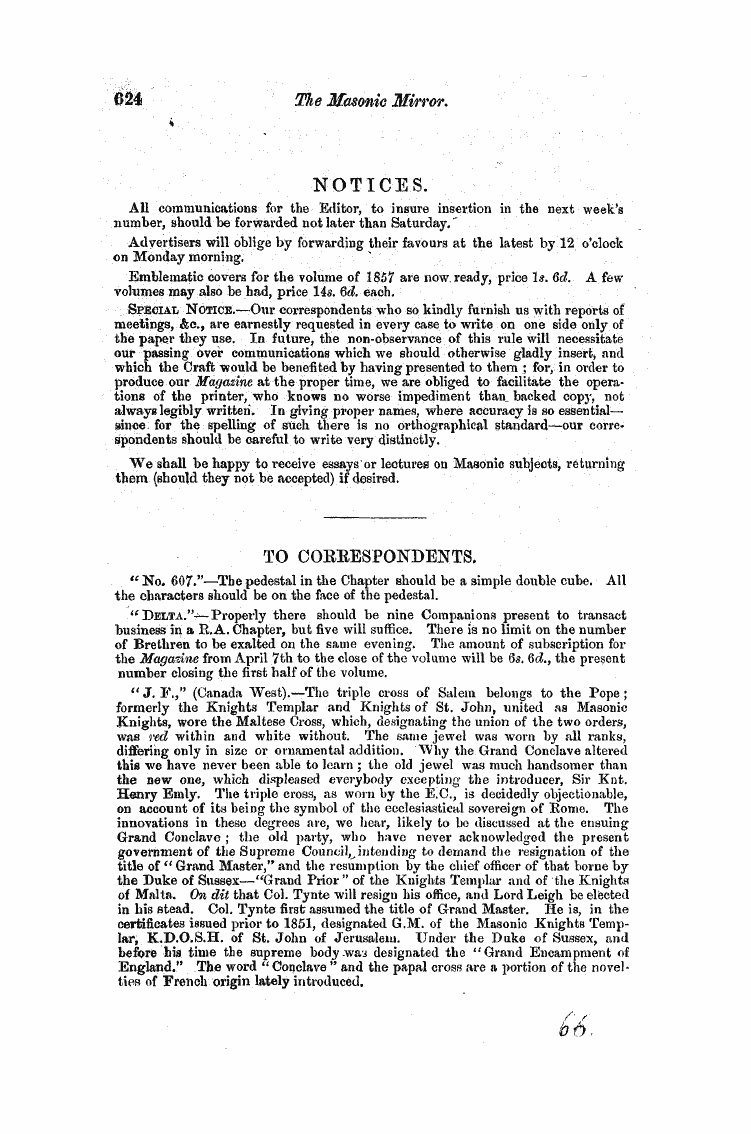-
Articles/Ads
Article MILITARY MASONRY. Page 1 of 2 →
Note: This text has been automatically extracted via Optical Character Recognition (OCR) software.
Military Masonry.
MILITARY MASONRY .
( From a Military Correspondent )
It is greatly to be regretted that so many colonels of regiments ( themselves not Masons ) are averse to the establishment of military Lodges in the corps under their command . GDhe want of them is most severely felt by those immediately concerned , viz ., regimental officers and non-commissioned officers , insomuch as their sojourn at any particular station in which a civilian Lodge may be existing is generally of short duration . They , above all men , from their liability to be quartered in any part of the globe , and consequently to associate with both civilized and uncivilized beings , are more likely to derive advantage from an acquaintance with the Craft , whereas we know that , being in a measure precluded from taking office , their
interest in Masonry must flag ; besides , even should a regiment chance to find a Lodge situate in eaclx country it may visit , and within easy distance , the continual expense ( for there is generally a joining fee ) would deter many worthy Brethren from attending the meetings . Nor would the more enthusiastic be able to procure office until the regular annual election , and the probability is that at least six months would have to elapse before this took place , and even
with the most zealous attendance , It could scarcely be expected that the Lodge would make office bearers of Brethren with whom they had been such a short time acquainted ; having for a certainty many old members , who had been for a considerable , period qualifying themselves for the various offices . If , by chance , tlie regiment remained for a year or two , there might be a possibility of obtaining it ; but even then it is doubtful whether they would not be regarded
as interlopers . The prevailing idea amongst non-Masons with regard to this vexed question is , that it causes familiarity between the different ranks , which , were it the case , would be prejudicial to discipline , and , consequently , greatly to be avoided . A simple denial , however , will
not suffice , and argument on these topics being forbidden , we cannot explain how antagonistic such conduct would be to the fundamental principles of Masonry . In Dr . Oliver ' s " Book of the Lodge , " there is a passage which bears strongly upon this subject ; it appeared in your December number ( page 952 ) , and must have proved interesting ; to those who have not vet perused the entire work . To save
the trouble of reference , I quote the last few ' lines : " A . Mason who belongs to the lower classes of society , though admitted amongst us under the influence of a good report for regularity of conduct and propriety of demeanour , is not to presume on that account to take any undue liberties with his superiors in rank , beyond those to which he would have been entitled were lie not a Mason . " It is rarely that a non-conunissioned officer omits any mark of respect , cither in
Note: This text has been automatically extracted via Optical Character Recognition (OCR) software.
Military Masonry.
MILITARY MASONRY .
( From a Military Correspondent )
It is greatly to be regretted that so many colonels of regiments ( themselves not Masons ) are averse to the establishment of military Lodges in the corps under their command . GDhe want of them is most severely felt by those immediately concerned , viz ., regimental officers and non-commissioned officers , insomuch as their sojourn at any particular station in which a civilian Lodge may be existing is generally of short duration . They , above all men , from their liability to be quartered in any part of the globe , and consequently to associate with both civilized and uncivilized beings , are more likely to derive advantage from an acquaintance with the Craft , whereas we know that , being in a measure precluded from taking office , their
interest in Masonry must flag ; besides , even should a regiment chance to find a Lodge situate in eaclx country it may visit , and within easy distance , the continual expense ( for there is generally a joining fee ) would deter many worthy Brethren from attending the meetings . Nor would the more enthusiastic be able to procure office until the regular annual election , and the probability is that at least six months would have to elapse before this took place , and even
with the most zealous attendance , It could scarcely be expected that the Lodge would make office bearers of Brethren with whom they had been such a short time acquainted ; having for a certainty many old members , who had been for a considerable , period qualifying themselves for the various offices . If , by chance , tlie regiment remained for a year or two , there might be a possibility of obtaining it ; but even then it is doubtful whether they would not be regarded
as interlopers . The prevailing idea amongst non-Masons with regard to this vexed question is , that it causes familiarity between the different ranks , which , were it the case , would be prejudicial to discipline , and , consequently , greatly to be avoided . A simple denial , however , will
not suffice , and argument on these topics being forbidden , we cannot explain how antagonistic such conduct would be to the fundamental principles of Masonry . In Dr . Oliver ' s " Book of the Lodge , " there is a passage which bears strongly upon this subject ; it appeared in your December number ( page 952 ) , and must have proved interesting ; to those who have not vet perused the entire work . To save
the trouble of reference , I quote the last few ' lines : " A . Mason who belongs to the lower classes of society , though admitted amongst us under the influence of a good report for regularity of conduct and propriety of demeanour , is not to presume on that account to take any undue liberties with his superiors in rank , beyond those to which he would have been entitled were lie not a Mason . " It is rarely that a non-conunissioned officer omits any mark of respect , cither in

































































































































































































